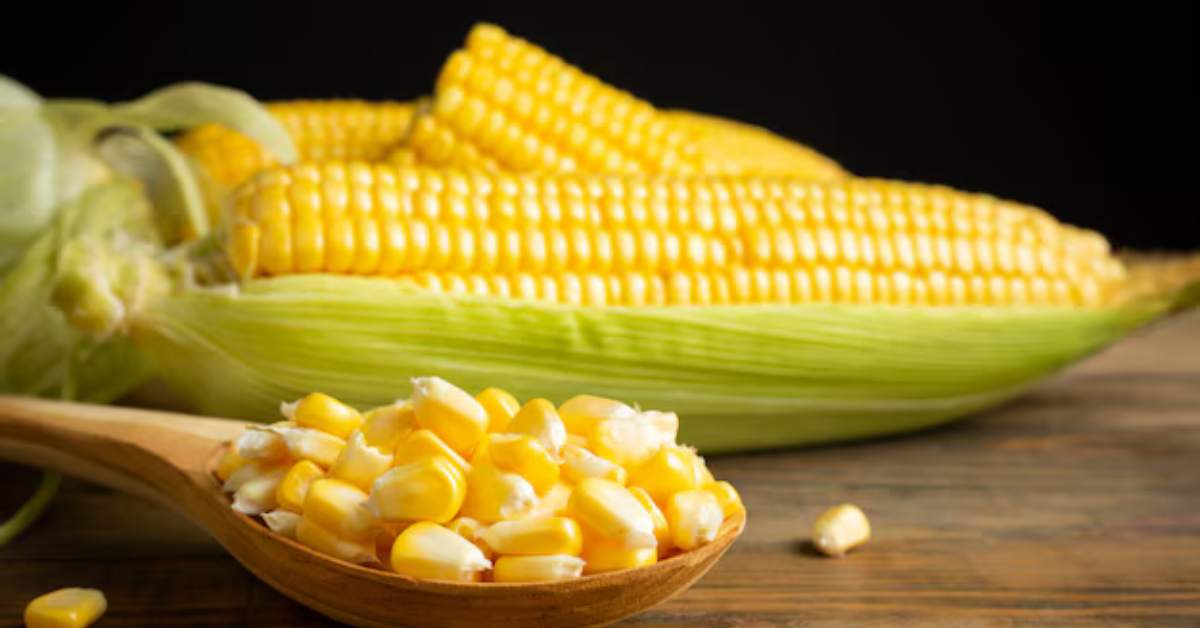The agriculture sector has always been the backbone of economies worldwide.
With the rising demand for sustainable farming practices, Farmer Producer Organizations (FPOs) have emerged as a powerful way to support small-scale farmers, increase productivity, and promote fair trade.
FPO Corn specifically refers to FPO initiatives focused on empowering corn farmers, optimizing production, and improving market access.
Through collective resources and support, FPO Corn initiatives enable farmers to achieve economies of scale, access better technology, and ensure fair pricing.
This article delves into what FPO Corn is, its benefits, how it works, and its impact on the agricultural landscape.
What is FPO Corn?
FPO Corn is an initiative under Farmer Producer Organizations (FPOs) to unite corn farmers to form a collective unit.
An FPO, or Farmer Producer Organization, is a registered group of farmers that work together to improve their agricultural practices, access markets, and strengthen their economic power.
FPO Corn helps corn farmers work collectively, reducing individual costs, optimizing farming practices, and obtaining better prices for their produce.
By participating in an FPO, corn farmers can overcome challenges typically associated with small-scale farming, such as limited market access, lack of technology, and dependence on intermediaries.
How FPO Corn Works
FPO Corn operates on a cooperative model where a group of corn farmers comes together to form a registered organization. This organization can negotiate on behalf of its members, secure bulk resources, and sell the produce directly to larger buyers or distributors. Here’s a breakdown of how it functions:
- Formation and Registration
The FPO Corn initiative starts with forming a group of farmers with common goals. Once registered, the organization gains legal standing, allowing it to conduct transactions, sign contracts, and collaborate. - Resource Sharing and Bulk Purchasing
As a collective, FPO Corn organizations can purchase seeds, fertilizers, and machinery in bulk, reducing costs for each member. This bulk purchasing allows them to negotiate better deals, lowering expenses and maximizing profitability. - Improved Farming Practices and Knowledge Sharing
FPOs often work with agricultural experts to promote sustainable and efficient farming practices. FPO Corn initiatives include training sessions and workshops on the latest cultivation methods, pest control, soil health, and crop rotation. Knowledge sharing within the group enhances productivity and improves crop quality. - Market Access and Fair Pricing
By working as a collective, FPO Corn enables farmers to bypass middlemen and access markets directly. This ensures that farmers receive fair prices for their corn, increasing their income and providing economic security. FPOs can also negotiate contracts with larger buyers, ensuring steady demand for their produce. - Financial and Government Support
FPO Corn initiatives often qualify for financial assistance and grants from the government, enabling farmers to access credit facilities, insurance, and subsidies. Government support is critical for FPO Corn organizations as it provides stability and resources for long-term success.
Benefits of FPO Corn
FPO Corn brings numerous advantages to corn farmers, communities, and the agriculture sector. Some key benefits include:
- Increased Bargaining Power
Through collective bargaining, FPO Corn members can negotiate better prices for inputs (such as seeds and fertilizers) and outputs, reducing costs and increasing profits. - Access to Better Technology and Resources
FPOs can invest in advanced farming technology, making it accessible to all members. This includes mechanized tools, irrigation systems, and modern farming techniques that enhance productivity and reduce manual labor. - Financial Support and Credit Facilities
Banks and financial institutions often prioritize loans for registered FPOs, as they pose a lower risk than individual farmers. This access to financial support enables FPO Corn members to invest in their farms and secure their future. - Risk Mitigation and Insurance
Farmers gain access to insurance schemes that protect them against crop failure due to adverse weather, pests, and diseases by participating in an FPO. FPO Corn initiatives help spread risk across members, providing a safety net for all. - Increased Income and Economic Stability
FPO Corn initiatives focus on fair pricing and direct market access, allowing farmers to retain a larger share of profits. This increases their income, improves their quality of life, and encourages sustainable agricultural practices. - Promotion of Sustainable Practices
FPO Corn organizations promote sustainable farming practices, such as crop rotation, reduced pesticide usage, and soil health management. These practices protect the environment and ensure long-term productivity.
Impact of FPO Corn on Local and Global Agriculture
FPO Corn initiatives are transforming agriculture by creating sustainable income opportunities for farmers. The impact is limited to the local community and extends to national and global agriculture. Some notable impacts include:
- Empowering Small-Scale Farmers: FPO Corn helps small-scale farmers compete in the market by providing them with the resources and support they need to succeed.
- Enhancing Food Security: By increasing corn production and ensuring a steady supply, FPO Corn contributes to food security at both local and national levels.
- Promoting Rural Development: The increased income from FPO Corn initiatives encourages rural development, supporting local economies and improving the living standards of farming communities.
- Boosting the Agricultural Economy: FPO Corn is vital for the agricultural economy, as it promotes economic growth, reduces poverty, and creates job opportunities within the agriculture sector.
Challenges in Implementing FPO Corn
Despite its benefits, FPO Corn faces challenges that can impact its effectiveness. Some of these challenges include:
- Lack of Awareness: Many farmers are unaware of the benefits of FPOs, which limits participation and reduces the impact of these initiatives.
- Limited Financial Resources: While FPOs can access credit, they still face financial limitations, especially in the initial stages of formation.
- Resistance to Change: Traditional farming practices are deeply rooted, and some farmers may resist adopting new practices promoted by FPO Corn.
- Infrastructural Constraints: Rural areas often lack the infrastructure to support FPO operations, such as storage facilities, transportation, and market access.
Future of FPO Corn
The future of FPO Corn looks promising as governments, NGOs, and financial institutions increasingly recognize the value of FPOs. FPO Corn is expected to expand with continued support, enabling more farmers to participate and benefit from collective farming.
Digital platforms are also playing a role in the future of FPO Corn, making it easier for FPOs to connect with buyers, manage resources, and access financial support.
Frequently Asked Questions (FAQ)
1. What is FPO Corn?
FPO Corn is an initiative under Farmer Producer Organizations that supports corn farmers by providing collective resources, better market access, and fair pricing.
2. How does FPO Corn benefit corn farmers?
FPO Corn enables corn farmers to access bulk purchasing, better technology, direct market access, and financial support, which increases their income and reduces costs.
3. Who can join an FPO Corn organization?
Any corn farmer interested in collective farming and willing to adopt shared practices and goals can join an FPO Corn organization.
4. What challenges does FPO Corn face?
Some challenges include a lack of awareness among farmers, limited financial resources, resistance to change, and infrastructural constraints in rural areas.
5. How does FPO Corn promote sustainable agriculture?
FPO Corn promotes sustainable practices like crop rotation, reduced pesticide use, and soil health management, helping protect the environment and ensuring long-term productivity.
6. Is government support available for FPO Corn?
Many governments offer financial support, grants, and subsidies to FPOs, including those focused on corn farming, to promote collective agriculture and improve food security.
7. Can FPO Corn help reduce poverty in rural areas?
By increasing income and economic stability, FPO Corn initiatives help reduce poverty and promote rural development.
Conclusion
FPO Corn represents a powerful tool for transforming corn farming, empowering farmers, and promoting sustainable practices.
By participating in FPO Corn, farmers gain access to resources that enhance productivity, ensure fair pricing, and promote economic stability by participating in FPO Corn by participating in FPO Corny.
While challenges exist, the benefits of FPO Corn make it a viable solution for modern agriculture, providing a pathway for small-scale farmers to thrive and contribute to food security.
As governments and institutions continue to support FPOs, FPO Corn is poised to play a significant role in the future of agriculture, empowering farmers, boosting the economy, and promoting sustainable farming practices across the globe.






